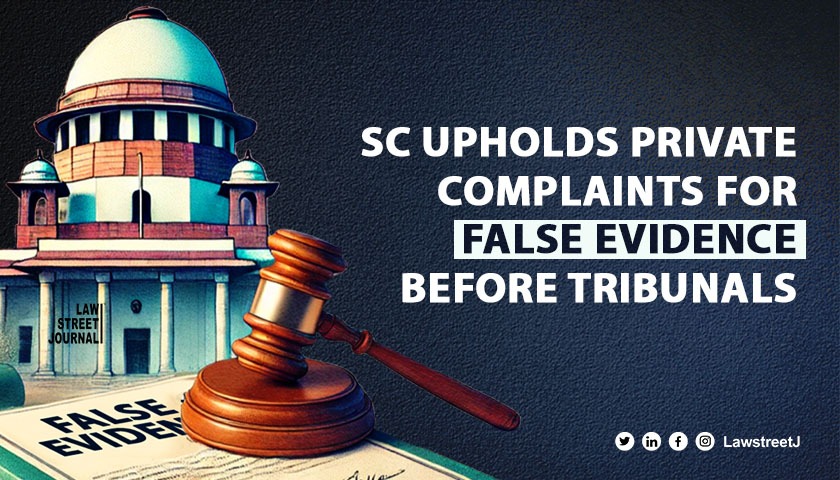New Delhi: The Supreme Court’s Division Bench has delivered a significant judgment, upholding the right to file private complaints for false evidence given before tribunals.
Supreme Court Clarifies Procedure for False Evidence Cases Under IPC Sections 193, 199, and 200
Justices Sudhanshu Dhulia and Ahsanuddin Amanullah addressed an appeal against the Calcutta High Court’s order that had rejected a private complaint regarding false evidence.
The case arose from allegations under Sections 193, 199, and 200 of the IPC for offences committed before the Municipal Building Tribunal. The High Court had declined relief, stating that such complaints could only be made on court directions.
Landmark Judgment: Private Complaints Allowed for False Evidence in Tribunal Proceedings
The court observed, “We have absolutely no doubt in our mind that an offence under Sections 193, 199, or 200 can theoretically be committed inside as well as outside a court.”
Addressing the procedural requirements, the court noted, “The only way such an application can be entertained—and that too, for the precise offences under Sections 193, 199, and 200—is through a private complaint and only in relation to offences before the Tribunal.”
The Division Bench allowed the appeal, setting aside the High Court’s February 5, 2024, order, while clarifying that the decision was based on technical grounds. The court directed, “The complaint shall be entertained by the concerned Tribunal, and thereafter, orders shall be passed.”
The court emphasized its reliance on the precedent set in Iqbal Singh Narang & Ors. Vs. Veeran Narang (2012), which established private complaints as the remedy for cases before tribunals not defined as courts.
For the appellant:
Mr. Vikash Singh, AOR with Mr. S. Hariharan and Mr. K. M. Kalidharun, Advocates
For the respondent:
Mr. Siddarth Luthra, Senior Advocate with Mr. Somopriyo Chowdhury, Ms. Pritha Basu, Mr. Ashish Choudhury, AOR, and others
Case title: Anil Kumar J. Bavishi Vs. Mahendra Kumar Jalan @ M.K. Jalan













